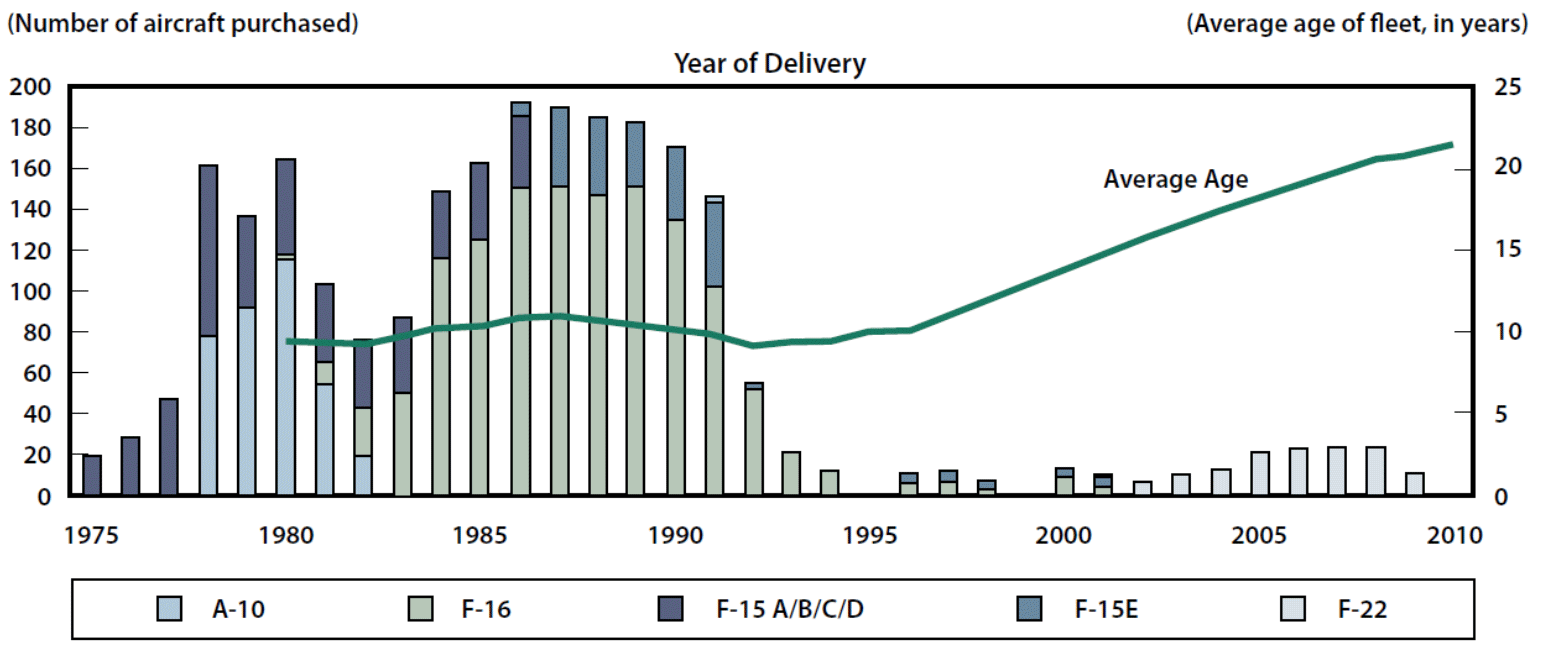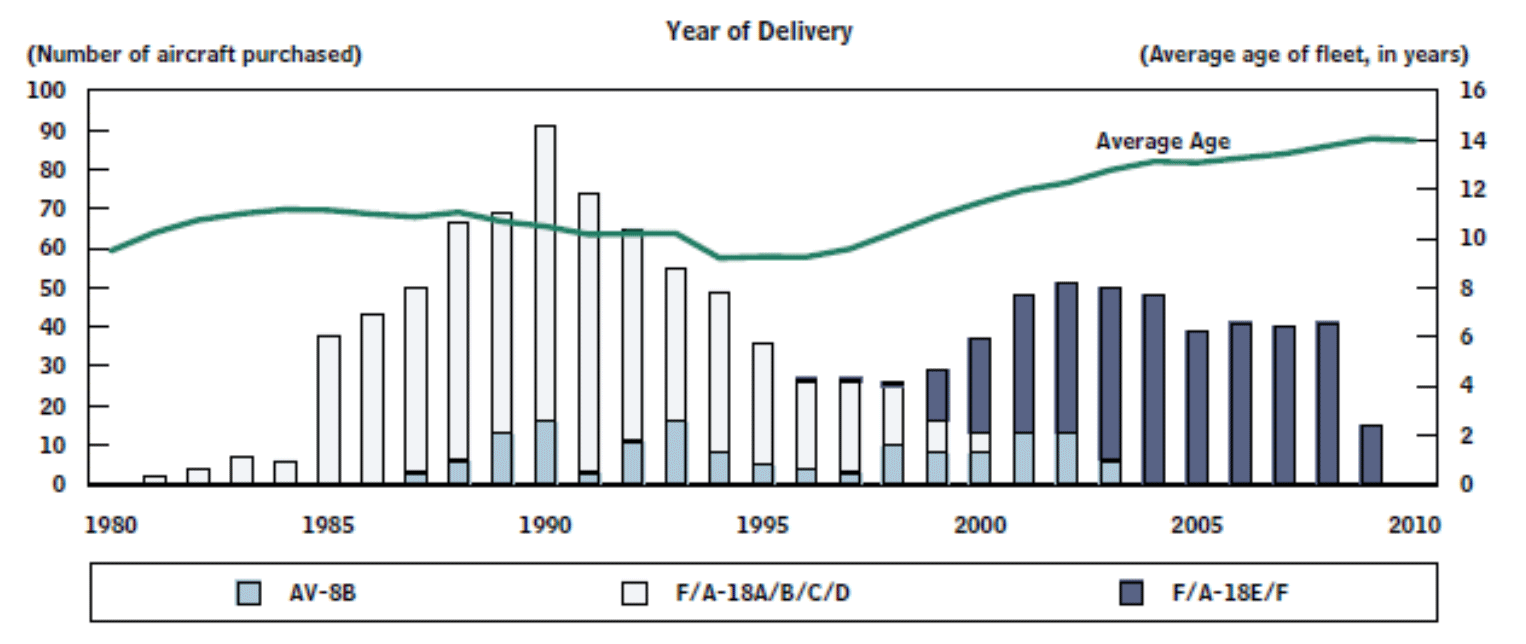Graph of the week: why the US Air Force needs the F-35 Joint Strike Fighter
Posted By Andrew Davies on November 26, 2012 @ 05:00
This week’s graph is a case of a picture that is worth $200 billion. Produced by the US Congressional Budget Office (CBO) in 2009, it shows the number of tactical aircraft procured by the US Air Force (USAF) every year since 1975, and the average age of aircraft in the inventory.
From 1978 to 1991, when production of the F-15 and F-16 ‘teen series’ strike fighters and the A-10 attack aircraft were in full swing, the annual buy averaged well over 100 aircraft. In terms of maintenance of overall fleet size and modernity, that was about ‘break even’. As the graph shows (click to enlarge), the average age of aircraft in the fleet hovered around 11 years throughout that period.
But from 1992 onwards, as production of the 1970s designs ramped down, the average age of the fleet began a steady upwards climb, reaching 20 years a few years ago. The delivery of 187 F-22s between 2002 and 2009 had essentially no impact on that trend. (Incidentally, the RAAF’s 71 1980s vintage Hornets and 24 brand new Super Hornets produce about the same average age).
Source: Congressional Budget Office Alternatives for Modernizing U.S. Fighter Forces [2] (PDF), May 2009.
To put it bluntly, the USAF is at risk of ageing itself out of competitiveness. And its options for remediation are limited. It could produce more teen series aircraft (as at least one USAF officer argues [3], PDF), which has the benefits of assuredness of design but the drawback of potential diminishing relative capability. That’s always a possibility, and Boeing is waiting in the wings with its ‘Silent Eagle’ F-15 derivative, but it’s not a plan likely to appeal to a service that has built its business model around state of the art technology. (Although I argued at the 2010 Airpower conference [4] that technology at all costs might not be the right approach in circumstances when capacity as well as capability is important.)
The net result is that the F-35 Joint Strike Fighter, as the only new design on offer, is really the only option for recapitalising the ageing fleet while keeping near the leading edge of aviation technology. That’s why the slippage of the program has caused a lot of angst for the Pentagon and the American and other services waiting for it—the 2009 CBO report envisaged the F-35 entering service with the USAF in 2013 (it won’t) and being in steady state production of 80 a year by 2015 (it won’t be). But it’s also why there’s no real risk of the program being scrapped even in an austere fiscal environment, although it may be scaled back.
As a final comment, the US Navy is in a much better position. When the ‘classic’ Hornet production line was wound down in the 90s, the Super Hornet came along as a ready made replacement. That production line is still open, and the USN can always buy more of those if it needs to. Even so, their fleet average age has crept up from 10 to 14 years since 1995. (See below.)
Thumbnail image courtesy of US Air Force [6].
Article printed from The Strategist: https://aspistrategist.ru
URL to article: /graph-of-the-week-why-the-us-air-force-needs-the-f-35-joint-strike-fighter/
URLs in this post:
[1] Image: https://aspistrategist.ru/wp-content/uploads/2012/11/why-the-US-Air-Force-needs1.gif
[2] Alternatives for Modernizing U.S. Fighter Forces: http://www.cbo.gov/sites/default/files/cbofiles/ftpdocs/101xx/doc10113/05-13-fighterforces.pdf
[3] USAF officer argues: https://aspistrategist.ru/wp-content/uploads/2012/11/F-Niemi-airpower_jopurnal_2012.pdf
[4] argued at the 2010 Airpower conference: http://www.aspistrategist.ru/events/recentEventDetail.aspx?eid=415
[5] Image: https://aspistrategist.ru/wp-content/uploads/2012/11/why-the-US-Air-Force-needs21.gif
[6] US Air Force: http://www.flickr.com/photos/usairforce/5951281971/
Click here to print.

